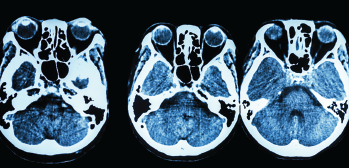These 21 particularly influential laryngology papers that have focused further research and served as educational resources for trainees and practicing physicians.

Do Hearing Aids Help Prevent Cognitive Decline?
Though the evidence is encouraging, clear causal linkage between hearing loss and cognition has not been established.
Nasal Lavage May Be a Valid Alternative to Swab Method in SARS-CoV-2 Detection
Nasal and nasopharyngeal lavages appear to be well tolerated and highly reliable in detecting SARS-CoV-2.
Bioinspired Mucoadhesive, Drug-Eluting Patch Appears Suitable for Laryngotracheal Wound Coverage
The devised novel, suture-less patch is a mucoadhesive platform suitable to laryngeal and tracheal anatomy with drug delivery capability.

Frailty Scores Predictive of Postoperative Morbidity, Mortality in Skull Base Surgery
Frailty as measured by the 5-factor mF1-5 is shown to be significantly associated with life-threatening postoperative morbidity, mortality, and length of stay following skull base surgeries.
Safety Profile of Novel Oral Anticoagulants an Improvement Over Traditional Anticoagulants, Antiplatelets for Epistaxis
A look at the impact of novel oral anticoagulants (NOAC) on the risk of epistaxis and its severity.
Physical Assault Is Increasingly the Most Significant Mechanism of Operative Facial Trauma in Adults
Operative middle and upper maxillofacial trauma decreased over a 17-year period, with assault identified as the most significant mechanism of trauma overall.
Data Shows Increasing Lack of Diversity within Elite Surgical Specialties, Especially Otolaryngology
Significant disparities exist in medical school enrollment for minority students and achievement of full professorship in otolaryngology, surgery, and internal medicine.
Hearing Impairment in Pediatric Population Associated with Higher Prevalence of Loneliness
Most existing studies have found that hearing impairment results in a higher prevalence of social isolation and loneliness in the pediatric population.
Transorbital Endoscopic Repair a Feasible Approach for Select Patients with Frontal Sinus Cerebrospinal Fluid Leaks
Transorbital endoscopic approach (TOEA) is a safe, minimally disruptive alternative for definitive management of frontal sinus cerebrospinal fluid (CSF) leak in well-selected primary or revision cases.
- « Previous Page
- 1
- …
- 22
- 23
- 24
- 25
- 26
- …
- 94
- Next Page »